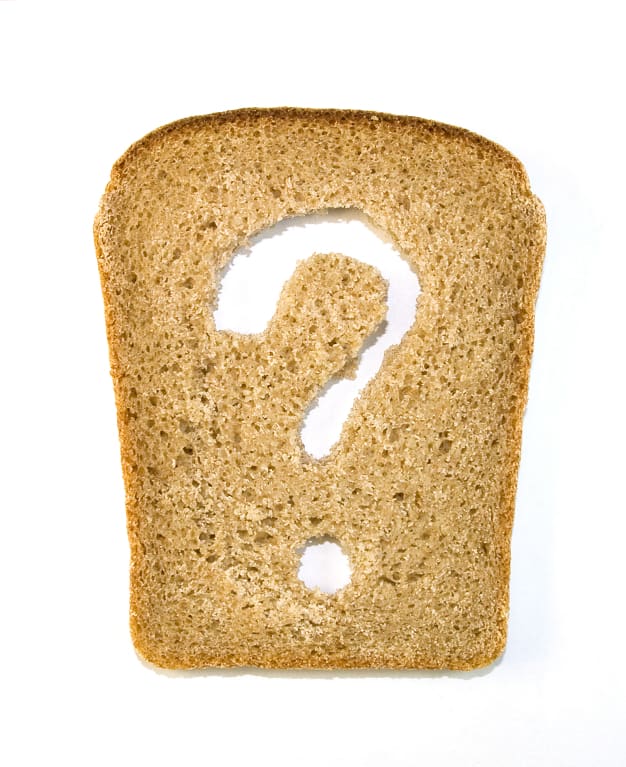“After a while the young man sat up and looked at the heavens, at the twinkling white stars, and then away across the shadows of round hills in the dusk. …The dreaming hills with their precious rustling wheat meant more than even a spirit could tell. Where had the wheat come from that had seeded these fields? Whence the first and original seeds, and where were the sowers? Back in the ages! The stars, the night, the dark blue of heaven hid the secret in their impenetrableness. Beyond them surely was the answer, and perhaps peace.”
—Zane Grey, The Desert of Wheat (1919) From the book: Harvest Heritage by: Richard D. Scheuerman and Alexander C. McGregor
This brief introduction to a recent article I wrote has everything to do with the love affair that we have all in one way or another been embracing. What is that love affair? It’s our total conviction that we must exclude gluten by simply giving up bread of every kind regardless that we are not true gluten-free candidates. We have indeed been sold a bill of goods by many well meaning doctors, and yes, even holistic practitioners, articles, blogs and all sorts of gluten-free foods sources! Now becoming a billion dollar industry!
The grand proof that we have at last found the answer to almost every health problem by going gluten free lays in the fact that in both commercial and health food stores shelf after shelf groans under the weight bearing gluten-free foods to appease even those that have never been bothered by eating gluten, failing to understand that they are still getting plenty of gluten from other sources. One of the reasons a diet completely free of gluten is so challenging is that gluten is present in many processed foods, not just those whose main ingredient is wheat, barley, or rye. Just a few of these include frozen vegetables, sauces, soy sauce, many foods made with “natural flavorings,” vitamin and mineral supplements, some medications, and even toothpaste. Do we really understand the implications of this gluten-free craze?
Finding myself slowly migrating in that direction, I came to an abrupt stop, and after a very long six months of studying this new diet craze, I took it upon myself to write a full-length article for the Weston A. Price Foundation and invite you to take the time to read it here: “Rethinking the Gluten Free Craze.”
Photo from iStock/N_michy




Hi Maria,
I read your article in the Wise Traditions magazine. This is very wonderful information, thank you! I know that people have been suffering from Celiac for thousands of years because the word itself is that old but what I don’t understand is why? Why would organically grown, ancient wheat cause this way back then? Would you help me to understand this better? Thank you!
Hello Ginny, Here is a brief answer to your question: First, I don’t know that people suffered from celiac thousands of years ago. But Drs. Royal Lee and Donald Kelly, along with research scientist, John Courtney, documented that celiac is caused by incomplete digestion of protein. Lack of protein digestion is caused by a lack of proteolytic enzymes, most likely due to stomach and pancreatic weakness. This undigested protein causes a thick mucus buildup. The protein molecule is very large. When undigested protein molecules roll through the intestines, they pick up debris which causes mucus to wrap around the protein. And that, in turn, damages the intestinal villi. Gluten is a protein. One of many! So you can imagine the rest of the story. Gluten no more causes this disease than sand causes sandstorms. But eating gluten—and many other proteins—will exacerbate the symptoms until the villi are restored to health. My advice is that whatever it is your dealing with, concentrate on good healthy natural foods like those recommended by the Weston A. Price Foundation and seek a professional trained in Standard Process products.
Maria Atwood
Hello Ginny, below is Maria Atwood’s response to your question:
Here is a brief answer to your question: First, I don’t know that people suffered from celiac thousands of years ago. But Drs. Royal Lee and Donald Kelly, along with research scientist, John Courtney, documented that celiac is caused by incomplete digestion of protein. Lack of protein digestion is caused by a lack of proteolytic enzymes, most likely due to stomach and pancreatic weakness. This undigested protein causes a thick mucus buildup. The protein molecule is very large. When undigested protein molecules roll through the intestines, they pick up debris which causes mucus to wrap around the protein. And that, in turn, damages the intestinal villi. Gluten is a protein. One of many! So you can imagine the rest of the story. Gluten no more causes this disease than sand causes sandstorms. But eating gluten—and many other proteins—will exacerbate the symptoms until the villi are restored to health. My advice is that whatever it is you’re dealing with, concentrate on good healthy natural foods like those recommended by the Weston A. Price Foundation, and seek a professional trained in Standard Process products.
Maria Atwood
Thank you for the reply! I say “thousands” because I had read and been told that the disease was named at least in the 1st or 2nd century A.D. and perhaps earlier by the ancient Romans. So I guess that even way back then people did things to themselves to cause illness (stomach and pancreatic weakness)? This explanation is very helpful thank you so much!
“Death begins in the colon” said Hippocrates of Cos as well as Nobel prize-winning Russian biologist Elie Metchnikoff. But I think it begins on the plate!
Love this!